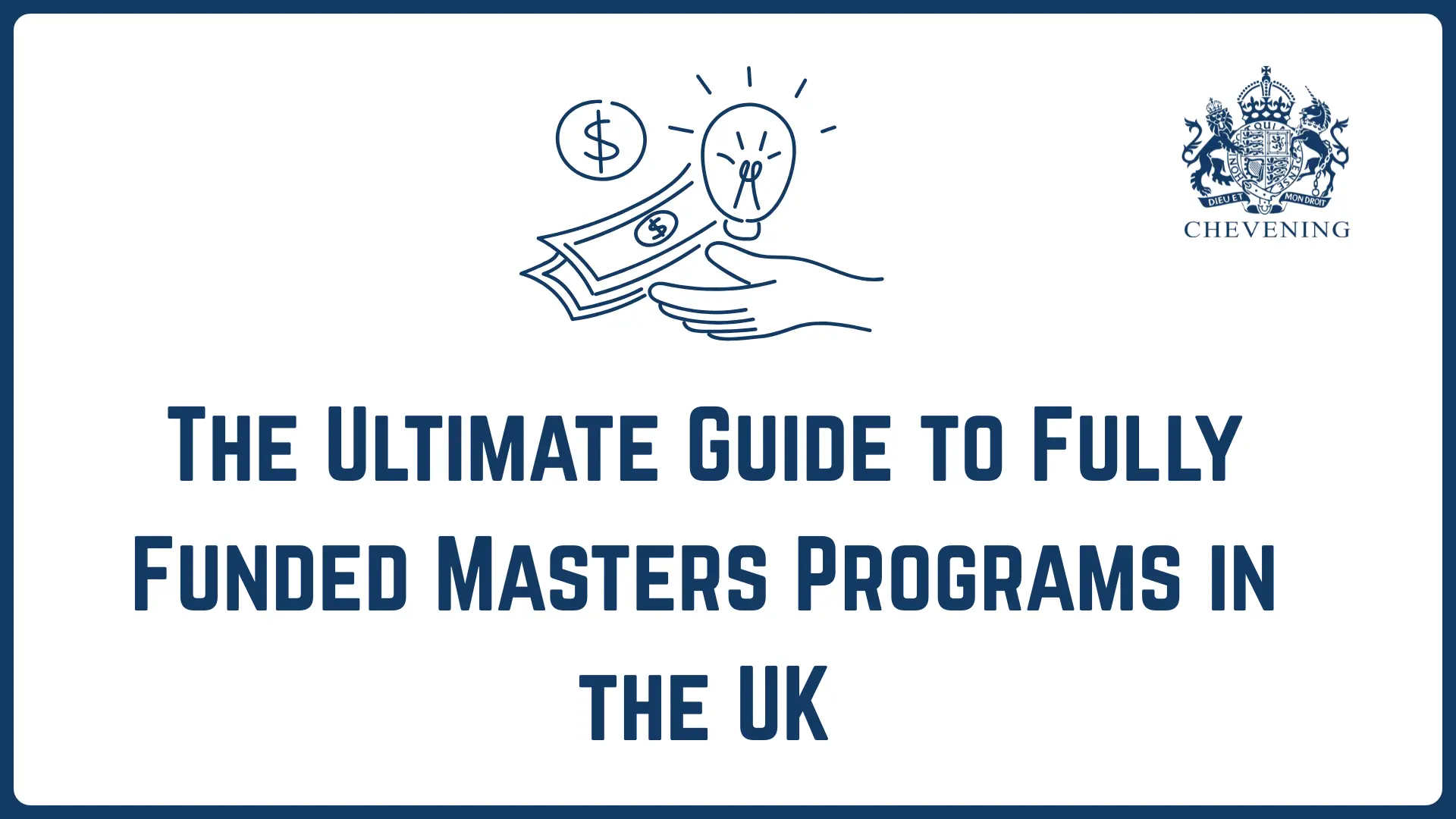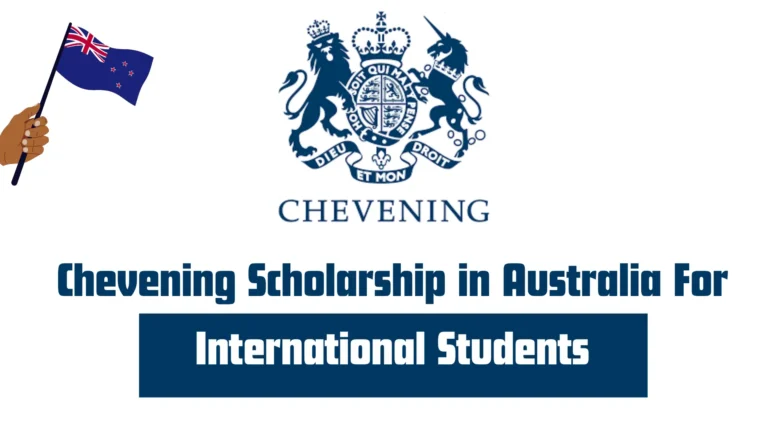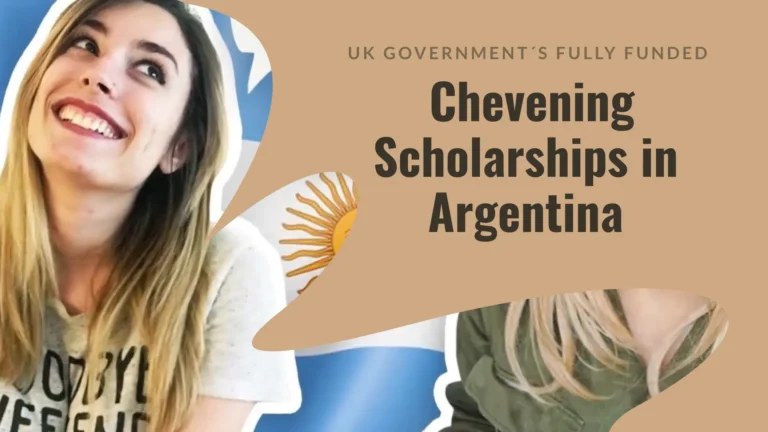The Ultimate Guide to Fully Funded Masters Programs in the UK
1. Introduction: Beyond Debt – The Strategic Advantage of a Funded UK Degree
Are you looking for Fully Funded Masters Programs in the UK 2026 ? A Master’s degree from a United Kingdom university is more than an academic qualification; it is a passport to a global network, a catalyst for career transformation, and a testament to specialized expertise. The UK’s higher education system, steeped in history yet driving innovation, offers an unparalleled environment for postgraduate study. However, this excellence comes at a cost. For international students, annual tuition fees can range from £15,000 to over £35,000 for prestigious programs, with living costs adding a further £12,000 to £15,000, especially in cities like London. For domestic students, while fees are lower, the financial burden remains significant.
This financial barrier prevents countless talented individuals from accessing world-class education. This is where the concept of a fully funded masters program becomes not just a financial aid option, but a strategic life decision. A fully funded scholarship is a comprehensive investment in your potential. It is a merit-based endorsement that removes economic anxiety, allowing you to fully immerse yourself in your studies, research, and professional development. The recipients of these awards join an elite alumni network that often provides lifelong career and personal benefits.
This guide is designed to be your comprehensive manual. We will move beyond simple lists and delve into the strategy behind securing funding. Whether you are an international student targeting the globally renowned Chevening Scholarship, a future healthcare professional navigating the NHS Learning Support Fund, or a UK student piecing together loans and grants, this article provides the depth, detail, and actionable steps you need to succeed. We will dissect application essays, provide worksheets for your referees, and create a timeline to keep you on track. Let us begin by demystifying what “fully funded” truly means.
2. Decoding “Fully Funded”: A Detailed Breakdown of Financial Packages
The term “fully funded” can be misleading. It is not a regulated term, and its meaning can vary significantly between providers. A thorough understanding of the components is crucial to assess the true value of an award.
- Full Tuition Coverage: This is the non-negotiable core. The scholarship covers 100% of your university’s tuition fees. Always verify if this is at the Home or International rate. For top-tier universities, this alone can be worth £30,000+.
- Living Stipend (Maintenance Allowance): This is a tax-free grant paid to you in monthly instalments to cover your cost of living. The amount should be realistic for the city of study.
- London Weighting: A stipend for a London-based university should be no less than £17,000 per year to cover higher accommodation and transport costs.
- Outside London: A stipend of £12,000 to £14,000 is more common and should be sufficient.
- Return Economy Airfare: Most major scholarships include one return flight from your home country to the UK at the beginning and end of your studies.
- Additional Grants and Allowances: This is what separates good scholarships from great ones. Look for:
- Thesis Grant: A lump sum to cover research costs.
- Conference Funding: Travel grants to present your research at academic conferences.
- Arrival Allowance: A one-off payment to cover the cost of setting up your new accommodation (e.g., bedding, kitchenware).
- Dependent Allowance: Additional funding if you will be accompanied by a spouse/partner and/or children. This is rare and highly valuable.
- Visa and Immigration Health Surcharge (IHS) Costs: The best scholarships (like Chevening) also cover the cost of your student visa application and the mandatory IHS fee, which grants access to the NHS. This can total over £1,500.
The Golden Rule: Always read the fine print. A “fully funded” scholarship that does not include a living stipend is, for most people, not fully funded at all.
3. The Prestige Pathway: UK Government and Global Scholarships
3.1. Chevening Scholarships: A Deep Dive
Chevening is the UK government’s premier global scholarship programme. It targets future leaders, influencers, and decision-makers.
- What it covers: A truly comprehensive package: tuition fees, a monthly stipend, travel costs, an arrival allowance, a homeward departure allowance, a thesis grant, and the cost of one visa application.
- Eligibility: Citizens of any Chevening-eligible country. You must have completed an undergraduate degree, have at least two years of work experience (2,800 hours), and apply to three eligible UK university courses.
- The Application Strategy:
- The Essays: The core of the application. You must write essays on Leadership and Influence, Networking, Studying in the UK, and your Career Plan. The key is to show, not tell. Use the STAR method (Situation, Task, Action, Result) to structure your anecdotes with measurable results.
- Course Choices: This is a strategic decision. Your three courses must be relevant to your career goals. Choosing three similar courses at different universities demonstrates focus and increases your chance of securing the required unconditional offer.
- Networking: Attend a Chevening event in your country. Speaking with alumni can provide invaluable insights.
3.2. Commonwealth Masters Scholarships
Managed by the Commonwealth Scholarship Commission (CSC), these scholarships are aimed at candidates from low and middle-income Commonwealth countries whose work will focus on development themes.
- What it covers: Similar to Chevening: approved airfare, tuition fees, stipend, thesis grant, and warm clothing allowance.
- Eligibility: You must be a citizen of a Commonwealth country. The selection criteria are highly weighted towards the potential development impact of your work.
- Application: You must apply through a National Nominating Agency in your home country. The process is highly competitive and requires a strong development-focused proposal.
3.3. The Marshall Scholarship
Funded by the British government, this prestigious scholarship is for intellectually distinguished young Americans to study any subject at the graduate level at a UK institution.
- What it covers: University fees, living expenses, annual book grant, thesis grant, research and daily travel grants, and fares to and from the US.
- Eligibility: US citizens who hold their first undergraduate degree with a minimum GPA of 3.7.
- Competitiveness: Extremely high. It looks for academic excellence, leadership potential, and ambassadorial potential.
3.4. The Fulbright Award
The US-UK Fulbright Commission offers awards for US citizens to pursue postgraduate study or research in the UK, and for UK citizens to do the same in the US.
- What it covers: Varies by award but typically includes tuition, a living stipend, and accident/sickness insurance. Some are full, some are partial.
- Eligibility: US citizens for UK awards. Requires a strong academic record and a well-defined project proposal.
4. The Institutional Goldmine: University-Specific Scholarships
Most universities have their own endowment funds to attract top talent. These are often less advertised than Chevening but can be just as valuable.
- University of Oxford: The Clarendon Fund is one of the largest, offering 140+ full scholarships covering fees and a generous grant. Many individual colleges and departments (e.g., Said Business School) also have their own awards.
- University of Cambridge: The Gates Cambridge Scholarship is one of the most competitive in the world, covering all costs. The Cambridge Trust also offers a significant number of full and partial scholarships.
- Imperial College London: Offers a range of scholarships like the President’s PhD Scholarship (though primarily for PhDs, it shows their funding level) and faculty-specific awards for master’s students.
- London School of Economics (LSE): The LSE Master’s Awards scheme is a needs-based award that can significantly reduce fees for students from low-income backgrounds.
- University of Edinburgh, University of Manchester, King’s College London: All have extensive scholarship databases. For example, Edinburgh offers Global Scholarships for specific regions.
How to Find Them: The key is diligent research. Go to the “Fees and Funding” section of your chosen university’s website. Use their scholarship search tool, filtering for your nationality, course, and level of study.
5. The Professional Launchpad: NHS Funded Masters Courses – A Complete Guide
For those pursuing a career in healthcare, the NHS provides some of the most accessible and generous funding routes in the UK.
5.1. The NHS Learning Support Fund (LSF) – Demystified
The LSF is a non-repayable grant for students on eligible pre-registration healthcare courses in England. It is designed to support living costs.
- Eligible Courses: A wide range including:
- Nursing (all fields)
- Midwifery
- Physiotherapy
- Occupational Therapy
- Podiatry
- Radiography (Diagnostic and Therapeutic)
- Speech and Language Therapy
- Dietetics
- The Financial Package:
- Training Grant: £5,000 per academic year for all eligible students.
- Specialist Subject Payment: An extra £1,000 per year for students studying Mental Health Nursing or Learning Disability Nursing.
- Parental Support: £2,000 per year if you have a dependent child.
- Travel and Dual Accommodation Expenses (TDAE): Reimburses extra travel and accommodation costs incurred due to clinical placements that exceed your normal daily travel.
- Eligibility: You must be:
- Registered on an eligible course at an English university.
- Eligible for student finance from Student Finance England (even if you choose not to take the loan).
- Not in receipt of an NHS Bursary.
- Application Process: Applied for online through the NHS Business Services Authority (NHSBSA) portal. You will need your personal details, university and course information, and your Student Finance Entitlement Letter. Apply as early as possible – delays are common.
5.2. The NHS Bursary
This is for students on medical and dental courses. It provides a contribution to tuition fees and a means-tested bursary for living costs, but it typically only applies from the second year of a long course.
5.3. Strategic Funding Combination
A key strategy for UK students is to combine the non-repayable NHS LSF (£5,000+) with a Postgraduate Master’s Loan (up to £12,167). This combined sum can effectively create a fully funded scenario, covering both living costs and a significant portion of tuition fees.
6. The UK Domestic Student’s Toolkit
UK students have access to a unique ecosystem of funding.
- Postgraduate Master’s Loan: A repayable loan from the government, paid directly to you. It forms the foundation of most self-funding plans.
- UKRI Studentships: Fully funded opportunities (fees + stipend) for research-intensive master’s degrees (MRes), often linked to doctoral training programmes.
- Charity and Trust Funding: Often overlooked. Organizations like the Guinness Trust or regional charities offer small grants. Use search engines like Turn2us or The Grants Register to find them.
7. The 5-Step Strategic Search Plan
- Self-Assessment: Define your academic and career goals with precision. What specific skills do you want to gain?
- Scholarship Audit: Use a spreadsheet to track every potential scholarship (Government, University, NGO), their deadlines, value, and requirements.
- University Shortlist: Identify 5-8 universities that are strong in your field. Subscribe to their postgraduate admissions newsletters.
- Timeline Master Plan: Work backward from the earliest deadline. Allocate months for test preparation (if needed), essay writing, and securing references.
- Final Vetting: Before applying, double-check eligibility and ensure your course choices align perfectly with the scholarship’s objectives.
8. The Master Application Blueprint
- Personal Statement Template:
- Paragraph 1: The Hook. Start with a powerful personal anecdote that illustrates your passion for the field.
- Paragraph 2: The Academic Foundation. Detail your relevant academic background and key projects.
- Paragraph 3: The Professional Experience. Use the STAR method to show leadership and impact in your work.
- Paragraph 4: The Why. Why this specific course? Why this specific university? Name professors and modules.
- Paragraph 5: The Why You. How will you contribute to the university cohort? What is your long-term vision, and how does this scholarship fit in?
- Worksheet for Referees: Provide your referees with a document that includes: the scholarship’s mission, the selection criteria, the course you are applying for, and 2-3 bullet points on a specific project or skill you’d like them to highlight. This makes their job easier and their letter more powerful.
9. The Alternative Path: Funded PhDs
Some UK PhD programs are advertised as “1+3” or “+3”, meaning they include a funded Master’s year (usually an MRes) followed by a three-year PhD. This is a common route for UKRI-funded programmes and is an excellent way to secure funding for a Master’s if you are open to continuing to a doctorate.
10. Frequently Asked Questions (FAQ)
Q1: Can I work while on a scholarship?
A: Most scholarships, including Chevening, allow limited part-time work (usually up to 20 hours per week during term time). However, the stipend is designed to cover living costs, so work should not be necessary.
Q2: What are my chances of winning a fully funded scholarship?
A: They are low, often in the single-digit percentages. This is why quality over quantity is crucial. One perfectly tailored application is better than ten generic ones.
Q3: Do I need to get into the university first before applying for the scholarship?
A: It depends. For university-specific scholarships, you often need to have applied for the course. For Chevening, you need to secure an unconditional offer after you win the scholarship. Always check the specific requirements.
11. Conclusion: Taking Your First Step Today
The journey to a fully funded Master’s in the UK is a marathon, not a sprint. It demands strategic planning, relentless research, and a commitment to crafting exceptional applications. However, the reward—a life-changing education free from financial burden—is immeasurable. This guide has provided you with the map; the journey is yours to start.
Your first step is simple: Open a spreadsheet. Today. Begin your scholarship audit. Identify one scholarship and one university to research this week. Momentum is everything. Your future as a funded postgraduate student in the UK begins not tomorrow, but with the action you take today.







